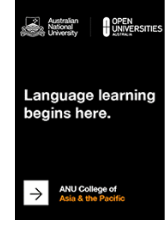Discussions of Chinese-language media only consider self-censorship to be ideological solidarity, or outright compliance, with the government in China, but this is not the full story, Fan Yang writes.
Audiences in Australia have been bombarded with stories of the censorship of stories in Chinese-language media. Indeed, ‘censorship’ and ‘foreign influence’ have been the two prevailing frameworks deployed by the Australian mainstream media and in political discourse to understand the country’s Chinese ethnic media. But is this an accurate representation?
Chinese ethnic media or Chinese-language media in Australia are small-to-medium-sized entities that were established and independently operated by Chinese migrant entrepreneurs, primarily targeting a Chinese migrant readership.
This category of media entities is financially independent of the Australian or the Chinese state.
With limited financial resources, rarely do these Chinese ethnic media organisations produce entirely original reporting. Translated news stories from Australian English media into either simplified Chinese, to target migrants from the People’s Republic of China (PRC), or traditional Chinese, to target non-PRC Chinese migrants, dominate the content published by the industry.
Wanning Sun critiqued the misconceptions about censorship in Chinese-language media, arguing that censorship is primarily driven by organisations’ financial interests, rather than being a reflection of national political influence from within China.
Evidence shows that rather than merely reflecting Chinese national interests, media professionals weave in and out contrasting political agendas from both China and Australia in their daily practices.
Beyond self-censorship are unvoiced political opinions and the ‘in-betweenness’ of media workers’ identities – the fact they often identify as both Chinese and Australian. Subtle self-censorship is not the same as political compliance or ideological solidarity.
In fact, some authors note that silence, rather than reporting, is the expression of many possible political opinions, and can communicate oppression, refusal, discontent, indignation, and indecision.
Silence in Chinese ethnic media is often taken purely as political compliance. In this way, current discourse on self-censorship by these media outlets fails to capture the many possible reasons why they may be keeping silent, or to recognise that many may not have the privilege of being able to speak out safely and have their voice accepted.
For Chinese ethnic media, keeping silent on an issue can express sentiments of resistance, reluctance, frustration, and transition. Chinese-Australian media professionals often keep silent about views that can potentially harm Beijing’s interests, not because of ideological solidarity, but in order to protect their financial interests and the safety of their families in China.
Individual ideologies are not static, and nor are agendas of these media organisations.
Current terminology, including ‘Chinese migrants’, ‘Chinese-Australians’ or ‘Chinese-language media’ in themselves cause problems, as they inaccurately suggest that migrants should either be ‘here’ in Australia or ‘there’ in China.
In fact, many Chinese migrants consider themselves as Australians first, with their work and life rooted in the country.
Of course, many migrants remain emotionally and culturally connected with their families in China, but they dynamically weave in and out of that identity, orienting towards their home society, host society, and diasporic community in their daily encounters and information consumption.
All of these choices are then affected by multiple structural factors, including national policies and international relations. Their identities simply can’t be ‘here’ or ‘there’ – they are ‘here’ and ‘there’.
Censorship is an inevitable and important subject, but current discussions have been reductive, assuming that Chinese ethnic media’s expression of silence equals compliance with the Chinese government’s agenda. The fact is that political ideologies among the Chinese diaspora in Australia are much more diverse and complicated than many have assumed.
T he tendency to overemphasise censorship in Australian discourse makes sense in light of the ongoing Australia-China geopolitical tension, but only further ‘otherises’ Chinese migrants.
he tendency to overemphasise censorship in Australian discourse makes sense in light of the ongoing Australia-China geopolitical tension, but only further ‘otherises’ Chinese migrants.
Ultimately, Australia needs to recognise the risk of politicising self-censorship. If it continues this bad habit of positioning Chinese migrants and Chinese ethnic media as either ‘with us’ or ‘against us’, it will disadvantage these already vulnerable groups and, in doing so, neglect media workers’ agency while they seek to simultaneously protect themselves and inform their communities.





 China's influence in Australia
China's influence in Australia
 Are Chinese students a threat?
Are Chinese students a threat?